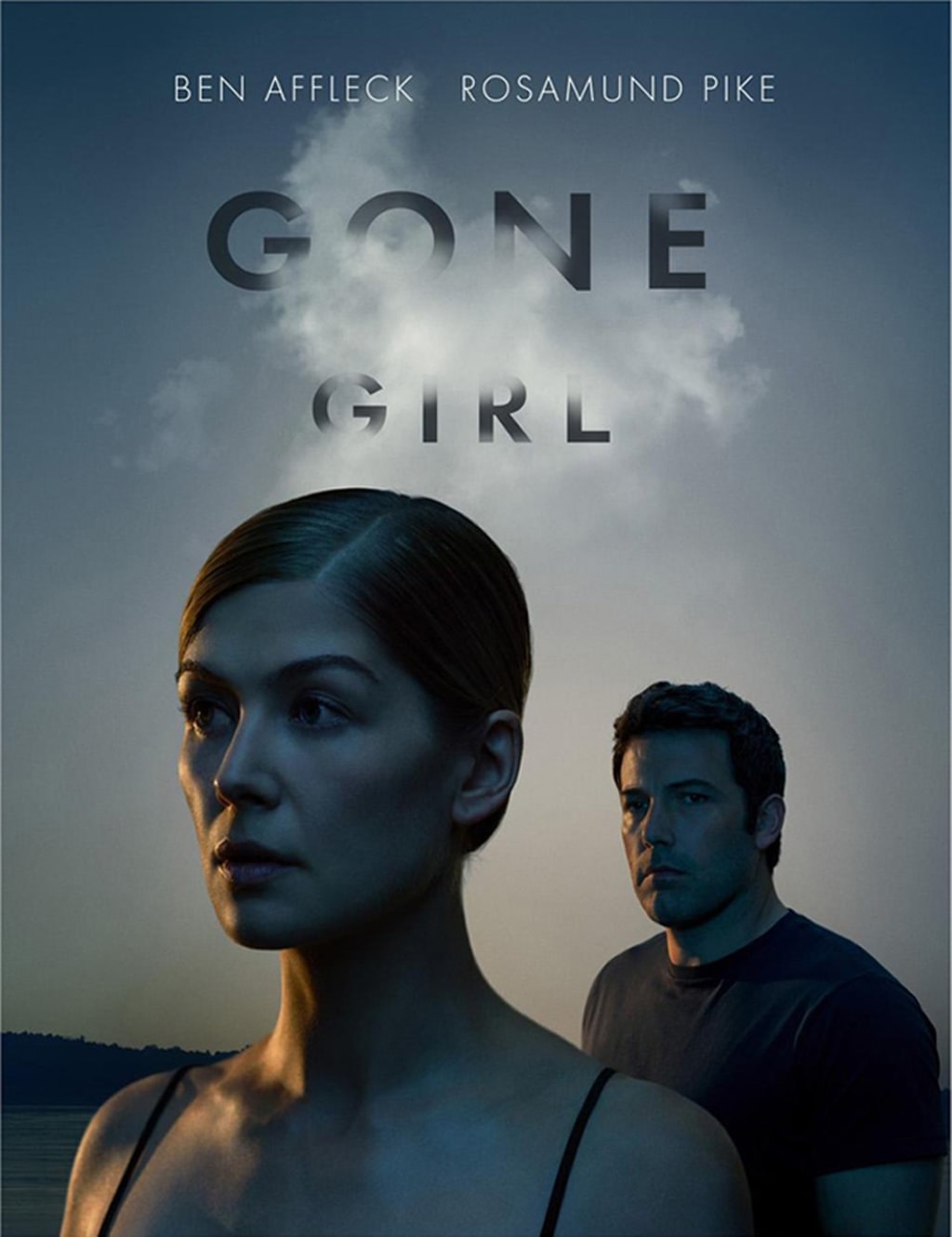Gone Girl
It's hard to ignore the parallels between the Dunnes and the real-life Petersons.

One tragic case and the media's fascination with the couple behind it. Despite some very different endings and conflicting details, it's hard to ignore the parallels between the Dunnes and the real-life Petersons
Directed by David Fincher, "Gone Girl" is a captivating and chilling psychological thriller that delves into the dark complexities of relationships and human nature. Based on Gillian Flynn's best-selling novel, the film follows the unsettling story of Nick Dunne (played by Ben Affleck) and his wife, Amy (played by Rosamund Pike), whose seemingly perfect marriage takes a sinister turn when Amy goes missing.
The film starts off with Nick's desperate search for his missing wife, as the police investigation and media circus surrounding the case quickly unfold. However, as the layers of the story are gradually peeled back, the audience is taken on a twist-filled journey that challenges their perceptions of truth, deception, and the intricate dynamics of marriage.
What sets "Gone Girl" apart is its ability to subvert expectations and keep the viewers guessing at every turn. The narrative takes unexpected detours, unveiling shocking revelations and blurring the lines between victim and perpetrator. The screenplay, written by Gillian Flynn herself, masterfully captures the essence of the novel, ensuring a faithful and engrossing adaptation.
The performances in "Gone Girl" are nothing short of exceptional. Ben Affleck delivers a nuanced portrayal of Nick Dunne, capturing the character's internal struggle as he navigates the scrutiny and suspicion surrounding his wife's disappearance. Rosamund Pike's performance as Amy is a revelation, as she seamlessly transitions between different facets of her character, leaving the audience on the edge of their seats.
David Fincher's direction brings a palpable tension to the screen, creating a brooding atmosphere that mirrors the dark and twisted nature of the story. The meticulous attention to detail, the haunting visuals, and the use of lighting and cinematography all contribute to the overall sense of unease, effectively drawing the audience deeper into the suspenseful narrative.
At its core, "Gone Girl" explores themes of perception, identity, and the manipulation of truth. It examines the complexities of human relationships and the masks that people wear to conceal their true selves. The film delves into the power dynamics between men and women, and the destructive consequences of unfulfilled desires and societal pressures.
"Gone Girl" is a gripping and thought-provoking thriller that excels in both storytelling and execution. With its captivating performances, intricate plot twists, and exploration of dark themes, the film keeps viewers on the edge of their seats from start to finish. Whether you're a fan of the novel or simply enjoy a well-crafted psychological thriller, "Gone Girl" is a must-watch that will leave you questioning the nature of truth and the depths of human behavior.
The brilliance of "Gone Girl" lies not only in its intriguing story but also in its sharp social commentary. The film deftly explores the influence of media sensationalism and the public's insatiable appetite for scandal. As the investigation unfolds, the media circus around Amy's disappearance escalates, exposing the darker side of journalism and the dangers of mob mentality.
Furthermore, "Gone Girl" is a character-driven film that delves deep into the complexities of its protagonists. Nick and Amy Dunne are not your typical heroes or villains; they are flawed, multi-dimensional individuals whose actions and motivations are driven by a combination of love, resentment, and manipulation. The film explores the question of how well we truly know the people we are closest to and challenges our preconceived notions of good and evil.
The film's narrative structure is masterfully crafted, employing flashbacks and dual perspectives to unveil the layers of deceit and manipulation. The screenplay seamlessly transitions between past and present, building tension and keeping the audience engrossed in the intricate web of lies.
Another standout element of "Gone Girl" is its haunting and atmospheric score composed by Trent Reznor and Atticus Ross. The music perfectly complements the film's dark tone, intensifying the sense of unease and adding an extra layer of psychological depth to the story.
In terms of cinematography, the film is visually stunning. David Fincher's meticulous attention to detail is evident in every frame, creating a visually rich and immersive experience. The use of shadows, colors, and framing adds to the overall mood of the film, amplifying the suspense and unease that permeate every scene.
"Gone Girl" is a film that stays with you long after the credits roll. It's a thought-provoking exploration of love, deceit, and the masks people wear to maintain their public personas. It challenges societal expectations and forces us to question the narratives we construct around others and ourselves.
About the Creator
Sonu Suthar
Information is the wealth.
If you are Addicted to horror and suspenseful stories , movies and books-
Stay Tuned !!






Comments
Sonu Suthar is not accepting comments at the moment
Want to show your support? Send them a one-off tip.